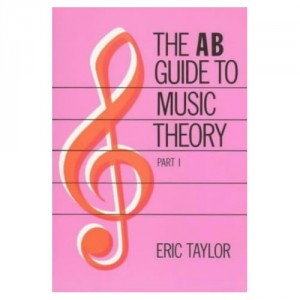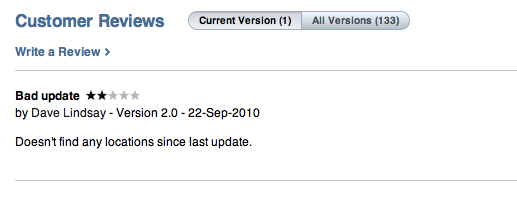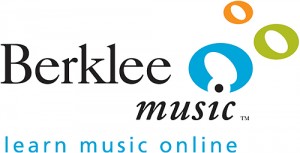by Christopher Sutton | Nov 13, 2010 | Music Theory
Last week I went down to the local exam hall to sit my first formal exam in several years: my Grade 5 Music Theory, something I should have taken about ten years ago – and have felt guilty for missing out on ever since.
The Backstory

 In school I played a lot of music. In my final two years I was taking weekly lessons in saxophone, electric guitar, piano, and singing – and playing in at least one group for each. Between all that and studying for A-Levels, my schedule was pretty packed.
In school I played a lot of music. In my final two years I was taking weekly lessons in saxophone, electric guitar, piano, and singing – and playing in at least one group for each. Between all that and studying for A-Levels, my schedule was pretty packed.
Despite all the playing, I wasn’t taking exams in guitar or piano and I’d stalled after Grade 5 with saxophone, so it wasn’t until my final school year, when my singing teacher suggested I take an exam, that the dreaded subject of “Grade 5 Theory” came up. It was always mentioned like that, as a single-unit phrase: “GradeFiveTheory”. Nobody ever spoke about any other theory grades. I’m not sure we knew they existed.
But everyone knew the rule:
If you wanted to progress beyond grade 5 in an instrument, you’d need your Grade 5 Theory.
So up and down the country, music students would (and still do) cram for the Grade 5 exam, probably without having ever studied any theory beyond the basics and bits they picked up along the way in instrument lessons.
Having seen friends and family go before me, I knew the drill. You’d buy the pink book and you’d buy the the workbook
and you’d buy the the workbook and generally once you’d worked through the workbook you were ready for what the exam would throw at you. (Note this isn’t quite the same as knowing the whole Grade 5 syllabus!)
and generally once you’d worked through the workbook you were ready for what the exam would throw at you. (Note this isn’t quite the same as knowing the whole Grade 5 syllabus!)
Life was a bit simpler for students taking Music GCSE or A-Level – they’d be learning a lot of the same material anyway, so taking the theory exam wasn’t a big deal. But I’d chosen not to study music as an academic subject (having seen others before me have their enthusiasm for music sucked out by the GCSE course), figuring I’d get all the music education I needed from instrument lessons and groups. After all, why spend time studying music in the abstract when you could be playing it instead?
So when my singing teacher suggested an exam, I was hoping she wouldn’t tell me I was below Grade 6 standard (since I’d been learning for years) but at the same time I wasn’t looking forward to hearing I might have to take the dreaded theory exam…
(more…)
by Christopher Sutton | Oct 4, 2010 | Ear Training, Music Theory, Technology
Being an Apple App Store developer is really a mixed bag. While it is streets ahead of other mobile platforms’ app stores in terms of platform consistency (which developers love), the market size, and audience for your apps, there are some deeply frustrating issues as well.
I want to briefly discuss one: the lack of two-way communication with users.
I’ll also look at some particular issues one user had with the RelativePitch app my company developed, around learning relative pitch with or without a harmonic context.
The App Store Review System
Users are free to write reviews of apps they download – and in my experience user reviews make an enormous difference to app sales. The App Store interface shows the most recent reviews of an app prominently, and having a negative review visible there can really impact sales.

A recent 1-star review can strongly influence App Store shoppers
What’s truly frustrating though is that developers have no way to respond to reviews, either publically or privately. We can’t email the users, and we can’t post a reply to their review. Some developers will respond within the app description text, but this isn’t scalable or particularly beneficial.
Sometimes a user will have misunderstood something, or somehow missed out on a large part of the app’s functionality. In a lot of cases this can be useful information: you can improve the app to aid the user’s understanding more in future. In other cases you just have to throw up your hands in the air and wonder what went wrong and whether the user spent even a couple of minutes trying to resolve their issue or looking at the help screens!
Once in a while there will be a review which puts me in a bad mood. Normally this is because they’re flaming the app without real justification – this inevitably affects the impression other potential customers get of the app, despite lacking substance.
And sometimes the reviewer raises interesting points which I disagree with, and I’m simply frustrated not to be able to respond.
Harmonic Context in Interval Training
One such reviewer appeared this week. They were kind enough to review both of our paid apps, leaving a 1-star rating and a strongly worded negative review for each. They raised some interesting points though, which I’d like to respond to here.
I’ve included the whole review below, and then again with my comments in-line.
(more…)
by Christopher Sutton | Sep 29, 2010 | Music Theory
As of this week I am officially a student at Berklee School of Music – and that’s not something I ever expected to be saying!
I’m enrolled in their Music Theory Specialist program, as an online course of study. It’s the first time I’ve done formal, structured online learning, and I’m very interested to see how well the class interaction and live events work. Also whether I can successfully fit it around my day-to-day schedule which recently is particularly busy and unpredictable.

So why am I studying music theory? Well, there are two reasons, both of which I feel a little awkward admitting to. But what better for the inaugural post on a newly launched blog than some embarrassing confessions?
First confession: I didn’t take music as a subject at school, just instrumental lessons. I’ve never taken a theory exam. I have accumulated a lot of theory knowledge over the years (and especially in the last year or so as I’ve been doing more ear training) but I have this suspicion that there are big areas I simply don’t know about; and probably should!
Second confession: It’s to give me confidence. Both in terms of having really solid music theory (which I think is incredibly liberating as a musician, improvisor, or arranger) and for the sake of having a real qualification from a respected institution. However dedicated and enthusiastic an amateur musician you might be, it’s hard not to feel intimidated when talking to ‘real’ musicians – i.e. those who’ve studied music formally to a high level. This course will hopefully be a step towards closing that gap for me.
I’m really excited to get started. Even though it’s nothing like auditioning and then being an in-person student at Berklee College, I’m proud to be attending in some sense. Based on the syllabus I’m hoping to find my first course, Music Theory 101, quite straight-forward, but I’m really not sure.
To put myself under a bit more pressure and get another chip off my shoulder, I’ve also registered to take my Grade 5 Theory exam in November: the standard exam that all serious music students take at school in the U.K., which I somehow managed to weasel my way out of! Again, I’m hoping the material won’t throw me for too much of a loop, but you never know until you dive in.
I’ll be posting a bit here about my experiences studying music online and any awkward theory shenanigans I encounter along the way.
If you’ve studied a lot of music theory, or have experience with online learning and have tips to share – drop me a line!

In school I played a lot of music. In my final two years I was taking weekly lessons in saxophone, electric guitar, piano, and singing – and playing in at least one group for each. Between all that and studying for A-Levels, my schedule was pretty packed.
and you’d buy the the workbook
and generally once you’d worked through the workbook you were ready for what the exam would throw at you. (Note this isn’t quite the same as knowing the whole Grade 5 syllabus!)



 My name's Christopher Sutton and this is my personal blog. You can learn more about me
My name's Christopher Sutton and this is my personal blog. You can learn more about me